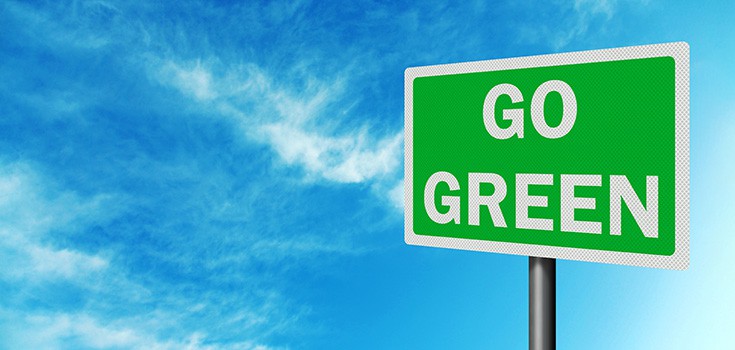Many ‘Green’ Products are Actually Deceptive and Toxic

Marketing is a clever science. Millions, if not billions, are spent by companies looking to better pitch their products to the masses. Today, we see more green products and “all natural” labels than ever before. While these are more common on food, they are being found on everything from your toilet paper to your all-purpose cleaning products. Many companies using these tactics have found in recent years that the whole “green” and “natural” movement is ripe for the picking.
Household cleaning products are a common source of chemical-quandary. After all, if the smell is such that you need to open a window while you clean, it can’t be good for you, right? To this end and to corral health and environment-conscious consumers, cleaning product manufacturers have started labeling their products as being “natural” and “non-toxic”. The labels might feature a tree or look like rough, recycled paper, all playing to your desire to have more natural and less harmful products. But many of these manufacturers are deceiving you.
The industry isn’t tightly regulated and manufacturers aren’t required to list all of their ingredients. So, in other words, if they wanted you to think they were providing a better, less harmful product, they could just not tell you about the “bad stuff” inside.
A study that analyzed cleaners and scented products found that even those that claimed to be natural, organic, or “green” contained chemicals with torrid pasts. About half of the products tested made these claims. And of all the products tested, an average of 17 chemicals were emitted during use, though only one made it to the label. In total, the 25 products tested emitted 133 chemicals of which 25% are classified as toxic or hazardous.
So, what can you do to truly lessen your exposure to chemicals like 2-butoxyethanol (used in Corexit 8527A and connected to damage to the liver, brain, respiratory system, and kidney) and other such toxins?
Know What You Are Looking For
Seek out products that list all of their ingredients and never choose those containing any of the following:
- Phosphates
- Phthalates
- Ethanolamines
- Parabens
- Formaldehyde
- Glycol ethers
- Volatile organic compounds (VOC’s) including chlorine and 1,4-dichlorobenzene
- Nonylphenol ethoxylates (NPE’s)
For a truly all-natural cleaning solution that is completely budget friendly, try mixing up some white vinegar with a touch of lemon juice. Be sure to check out these home cleaning products to replace the toxic culprits.
Additional Sources:

Normally people think that all the green clean products are friendly to atmosphere as well as human health.Even i also think the same but this article really gives very vital information.Nice.
This is really a great article as it is giving information about the cons of the green clean products to which normally people don't know it.
So sad that companies use to be sued for false advertising. Now it is the whistleblower that gets nailed and thrown in jail….. Pray for karma to their offspring.
We as consumers need to also try to assume some accountability. We need to learn about the ingredients and then read them. Just yesterday I emailed a company asking the origin of their ingredients. They were, in fact, able to answer me. Of course I cannot be 100% sure that is the truth, but other factors make me comfortable enough that it is. I have found that the best way to show others about cleaning products is to simply use them. I make some of my own and buy others. People come into my home and see what might work for them. I will definitely be reposting this article though.
Some of those same cleaning ingredients like formaldehyde, gluteraldehyde, and polysorbate 80 are also in vaccines and are considered "inert", as in the example of Pediarix, which we give to children from 6 months to 6 years of age (commonly known as DTaP-HepB-IPV). To me, this is outrageous! The government page regarding the hazards of formaldehyde alone is over 14 pages. And one of the biggest manufacturers of formaldehyde is a Big-Ag company that coming more and more into the spotlight these days. At last people are starting to get the fact that these companies do not necessarily have their best interests at "heart"…just the bottom line.
There are a lot of so called green products that are processed with either unfriendly terms with the environment or with due material wastage. I believe that our food production is very compromised.